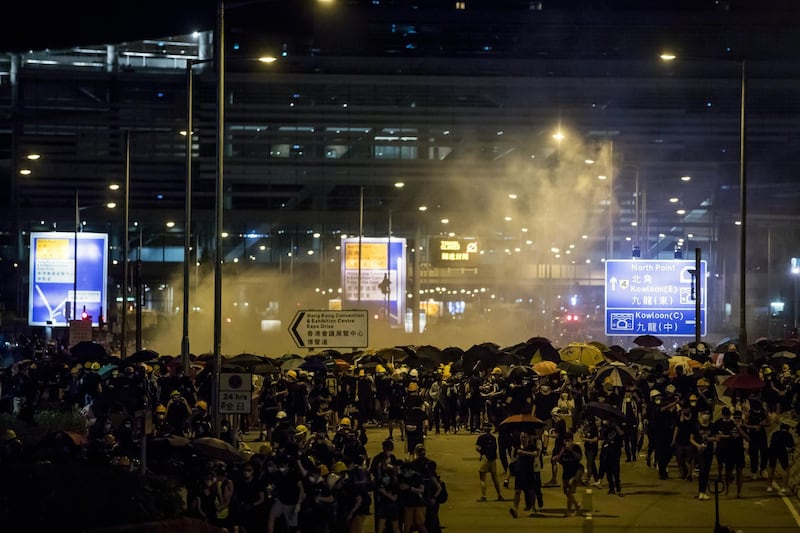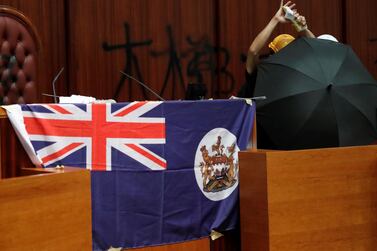China has responded sharply to comments made by Britain's foreign secretary about the recent anti-government protests in the former British colony, lodging an official protest with London about his warning of "serious consequences" if Beijing breaches a handover agreement.
Foreign ministry spokesman Geng Shuang said on Wednesday that Jeremy Hunt appeared to be "basking in the faded glory of British colonialism and obsessed with lecturing others".
Mr Hunt had said that Hong Kong authorities should not use an outbreak of vandalism in the legislative chambers by protesters Monday night as a "pretext for repression". He said the authorities need to "understand the root causes of what happened, which is a deep-seated concern by people in Hong Kong that their basic freedoms are under attack".
Mr Geng said Britain restricted Hong Kong's democracy prior to the 1997 handover to Chinese rule and had no right to comment.
Under the terms of the 1997 handover deal from British to Chinese rule, Hong Kong enjoys rights and liberties unseen on the mainland. But protesters accuse Beijing of reneging on that deal with the help of unelected leaders.
"Hong Kong is part of China and we have to accept that. But the freedoms in Hong Kong are enshrined in a joint declaration" signed with former colonial ruler Britain, Hunt said Tuesday.
"We expect that legally binding agreement to be honoured and if it isn't there will be serious consequences."
Beijing denies interfering but, for many Hong Kong residents, the extradition bill is the latest step in a relentless march towards mainland control. Many fear it would put them at the mercy of courts controlled by the Communist Party where human rights are not guaranteed.
Confrontations and outbreaks of lawlessness in Hong Kong could damage its reputation as an international business hub and seriously hurt its economy, China's top newspaper, the People's Daily, said in an editorial on Wednesday.
Hundreds of protesters in the former British colony besieged and broke into the legislature late on Monday after a demonstration marking the anniversary of its return to Chinese rule in 1997.
China called the violence an "undisguised challenge" to the "one country, two systems" model under which Hong Kong has been ruled for 22 years.
"It is not surprising there are some disagreements and even major disputes about certain issues, but if we fall into the whirlpool of 'overpoliticisation' and artificially create division and opposition, it will not only serve no purpose, but will also severely hinder economic and social development," the ruling Communist Party's official People's Daily said.







